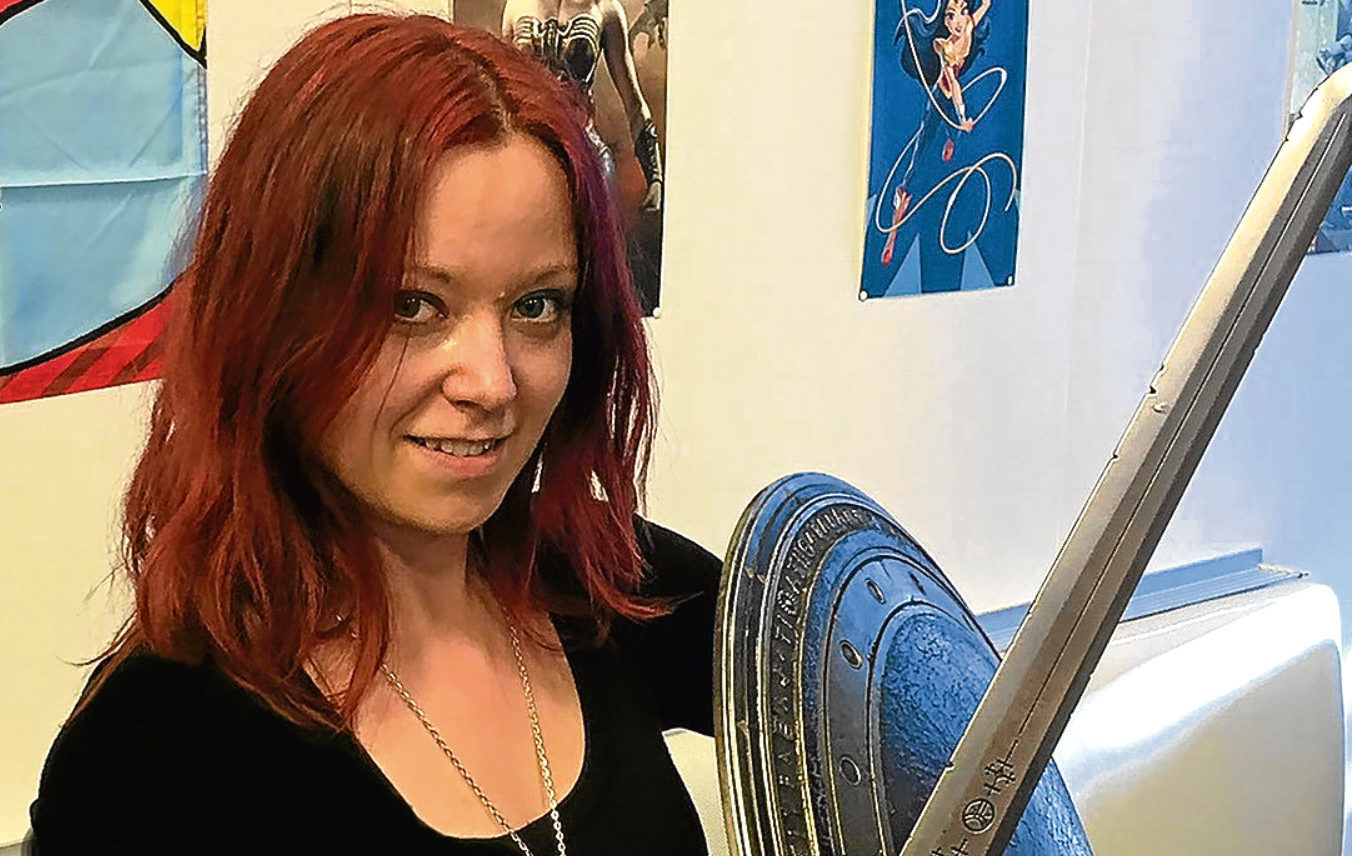
IT sounds like the plot of the latest Marvel comic-book movie.
A young girl survives Chernobyl radiation, arrives in the USA as a refugee and then, after being inspired by a superhero picture, uses her “power” to help others.
The thing is, it’s all true.
Dr Janina Scarlet has gone from being that girl suffering from Post-Traumatic Stress Disorder to a psychologist specialising in the treatment of PTSD.
“I was born in Ukraine and as a child, I was exposed to radiation from the Chernobyl nuclear reactor disaster. We were only 180 miles away,” explains Janina.
“It destroyed my health and I wasn’t sure if I would make it to adulthood.
“I had nosebleeds that wouldn’t clot, recurring nightmares and migraines related to weather changes — every time it rained or snowed, I’d get severe migraines and sometimes seizures.
“I had so many experiences when I thought I was going to die that I became scared of everything. I became scared of doctors, of getting sick.
“Anyone exposed to radiation will think about cancer, and I had no appetite.
“When my family moved to the US, I was in seventh grade. Kids can be really cruel, especially to someone who didn’t speak English, so I was an easy target.
“I was 16 when I saw the first X-Men movie and it changed my life.
“I saw this group of superheroes, all of whom had a genetic mutation, all of whom had overcome something, and all of whom had been ostracised and bullied.
“For me, the X-Men represented hope, they represented healing. They represented what I wanted to become.
“I realised I was not so much a victim, as a survivor, and I decided I wanted to use my story to help trauma survivors. That’s when I realised I wanted to go into psychology.”
Janina has pioneered “Superhero Therapy”, as she explains: “A lot of people might not have the vocabulary and understanding to explain what’s happened to them, to explain their emotions or talk about their experiences.
“But we’re able to draw parallels a lot more easily than we are to talk about our own experiences. Many people when they’re reading Harry Potter, for example, might think: ‘Wait a minute, I experienced similar to what Harry did,’ and might realise that their family members had been abusive.
“Others might realise they had symptoms of depression similar to how the Harry Potter characters did when they were facing the Dementors.
“Through drawing parallels, not only do we have a better understanding that we have been through something painful, we realise how we might recover. We might learn that just like our favourite heroes — whether traditional superheroes or from Harry Potter or Star Wars or Star Trek — we might find meaning in connecting with something important, something that’s bigger than ourselves.
“Like the Doctor, for example, we might find meaning in helping others. This is where stories have been helping people for thousands of years — they’ve been used to teach people the moral code, to teach about trauma and healing.”
PTSD is something we’ve been hearing more and more about over recent years but Dr Scarlet says: “I don’t think PTSD rates are higher, it’s more that people understand it now and that it needs to be addressed.
“Of course with the wars we’ve had, we’re seeing higher rates in the military, but in general, we’re better at diagnosing it.”
You don’t have to have been in combat to develop PTSD. My cousin, a Major in the US Marines, was a lawyer nowhere near the front line in Iraq but he was diagnosed with the condition after having to despatch body bags back to the States.
“I’ve worked with the military for a number of years and not everyone I saw had combat-related PTSD,” nods Janina.
“I also work with civilians. PTSD can result from just about any traumatic event, such as a car accident, assault or tragic loss.
“If somebody suddenly loses a family member, they might start having nightmares, become hyper-vigilant, worry about themselves or other people being in danger — they’re all key symptoms of PTSD.
“Others include reliving the event and, as well as flashbacks, you might get sudden changes in mood such as severe rage or sadness or numbness, or you might see the person avoiding talking about the event or avoiding certain places or reminders.”
As part of her therapy work, Janina has diagnosed various heroes. So does Bruce Wayne AKA Batman have PTSD?
“I don’t know if he has PTSD although as a child he sees his parents murdered, and of course that is traumatic,” she says.
“But not everyone who experiences trauma develops PTSD. In fact fewer than 20% do, so while Bruce Wayne certainly has hyper-vigilance, which he does need to fight crime, we don’t know if he has all the other symptoms and meets the criteria.
“He does display something else that happens as a result of trauma in a lot of people — post-traumatic growth. It’s a lot more common than PTSD and is about finding meaning as a result of trauma.
“That’s exactly what Batman does. He decides he wants to protect the citizens of Gotham to make sure what he experienced doesn’t happen to anybody again.”
And what about Doctor Who? I’ll take an amateur’s guess that he has multiple personality disorder?
“I think that regeneration is clever but I don’t think it represents Dissociative Identity Disorder, previously called multiple personality disorder,” explains Dr Scarlet.
“People with DID have no memory of their other identities when, maybe due to trauma, they switch back and forth. The Doctor does remember all his identities and doesn’t switch back and forth.
“I do think there are times when he experiences depression, however, for example when the 11th Doctor (Matt Smith) loses his companions Amy and Rory — I apologise if this is a spoiler for anybody! — he does go through over a hundred years of grieving and solitude.
“But more than anything, I think he meets the criteria for post-traumatic growth. He’s experienced more trauma than anybody, but uses his experiences to help others.
“He finds meaning in his losses so I think in a lot of ways the Doctor’s quite healthy and he uses his traumatic experiences to become the hero that he is — or she — is!”
n Therapy Quest by Dr Janina Scarlet, an interactive fantasy adventure novel that takes a unique approach to self-help, published by Robinson, is available now.

Enjoy the convenience of having The Sunday Post delivered as a digital ePaper straight to your smartphone, tablet or computer.
Subscribe for only £5.49 a month and enjoy all the benefits of the printed paper as a digital replica.
Subscribe
